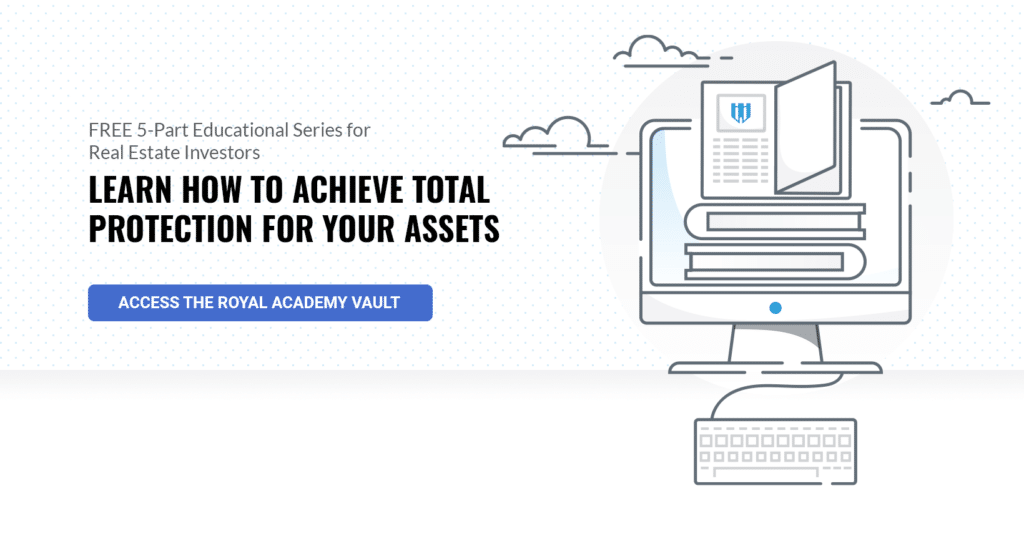8 Creative Ways to Fund a Real Estate Investing Startup
If you're considering a real estate investing startup, you may be wondering where you can get the capital to fund your first deal. Read below to find out about some of the many options available to you.
1. Conventional Loan
The most frequent type of mortgage is a conventional loan. You make a down payment, and the bank gives you the rest of the money in exchange for a lien on the property secured by a mortgage.
Investors who put down at least a 20% payment are not required to carry private mortgage insurance (PMI). PMI is a form of mortgage insurance that you may be required to pay for if you have a regular loan. PMI protects the lender if you stop making payments on your loan.
Not every real estate investing startup has the capital to go this route for their first deal.
2. Federal Housing Authority Loans
The Federal Housing Authority loan is a government-sponsored loan that encourages individuals to buy houses by allowing borrowers to make a down payment of 3.5%.
Because the FHA assumes some of the financial risks by ensuring the cost of the loan if the borrower fails to make payments, more borrowers can qualify for an FHA loan than a standard loan, and the lender can offer a competitive interest rate.
FHA loans come with some drawbacks for funding your real estate investing startup:
- You have to live on the property for at least one year
- You must pay mortgage insurance over the life of the loan
- Strict appraisal requirements for these loans prevent buying fixer-uppers
3. Private Lenders
A private lender is a person or entity that uses its own money to finance investments such as real estate and earns interest payments on the loan. Private lenders operate independently of banks or other financial institutions, and they deal directly with the borrower.
Here are some tips for finding private money lenders:
- Conduct a thorough online search for mortgage loan alternatives
- Build your network:
- Join local real estate investor meet-up groups
- Join and participate in LinkedIn
- Attend local industry events
4. Venture Capital
Look for venture capital, aka angel investors. A real estate angel investor may help you finance the purchase of a property.
If an angel investor has faith in the proposed investment property's chances of success, they will supply the money required to finalize the transaction. Sometimes, angel investors will join forces to form angel groups to participate in more significant transactions.
Where can you find real estate angel investors?
Most people who have secured private investor angel capital claim that networking is the most effective method for locating real estate angel investors.
You'll need a polished presentation to approach potential investors. It doesn't matter how excellent you are or how helpful your services are if you can't communicate them effectively through a good pitch. A successful and effective sales pitch demonstrates your enthusiasm, proves that you know what you're doing, and answers questions. Practice your presentation to improve your public speaking and sales skills so that when the opportunity arises, you're prepared.
5. Crowdfunding A Real Estate Investing Startup
Real estate crowdfunding is a relatively new approach to investing in real estate.
Real estate investment platforms (also known as crowdfunding sites) link individual investors with real estate developers and other real estate professionals who want exposure to the sector without dealing with buying, funding, and managing properties.
Here is a list of real estate crowdfunding sites that may be suitable for your needs:
6. Hard Money
Hard money is similar to private capital, but it comes from a hard-money lender instead of a person. The term "hard money" is appropriate because the lenders secure the loan using the hard asset (the property).
Individuals use hard-money, short-term loans to purchase a property they intend on renovating and re-selling.
Typically, you'll get hard money to cover 70–80% of the property's purchase price before rehabilitation. So the lenders must be confident that the property is worth more than the loan and their cost to sell it if you default.
Hard-money lenders usually charge high-interest rates and include other expenses such as loan origination fees.
7. Home Equity Line of Credit (HELOC)
If you already own a house and have some equity tied up in it, you may use a home equity line of credit or HELOC.
Let's assume that you've spent ten years in your primary home paying down the mortgage and reaping the benefits of appreciation.
Your home appraises for $300,000, and your mortgage payoff amount is $150,000. Your equity in the property is $150,00 ($300,00 appraisal - $150,000 mortgage payoff).
You may use a HELOC to borrow against the equity in your home and use the $150,000 to purchase an investment property.
8. Fund Your Real Estate Investing Startup With a Self-Directed IRA
Many of our clients invest in real estate through their Self-Directed IRAs because there are several advantages, tax perks, and little-known secrets that only real estate investors with a Self-Directed IRA can utilize.
- Your profits are tax-free.
- There is no time limit for keeping the property.
- You can earn a greater return on your capital.
Do you want to learn more about Self-Directed IRAs and how they help you earn more from your real estate investment? Read our comprehensive guide on Self-Directed IRAs.
Critical Takeaways For Funding Your Real Estate Investing Startup
- Traditional financing, such as a conventional loan, is only one of many options you could explore.
- Crowdfunding and angel investors are rising alternatives for funding real estate investments.
- You can use a HELOC on your primary residence to purchase and rehab an investment property.
- You could begin investing in real estate by moving your 401(k) assets into a self-directed individual retirement account (SDIRA).
Royal Legal Solutions is here to help you along your real estate investing journey.
- Before you make significant investments, ensure that your legal and financial company structures are in place.
- Take our financial freedom quiz to engage our legal team for additional wealth-building insights.

 What is an EIN?
What is an EIN? Does a general partnership need an EIN?
Does a general partnership need an EIN? How do you obtain an EIN?
How do you obtain an EIN? Landlord Liability in Tenant Dog Bite Cases
Landlord Liability in Tenant Dog Bite Cases #2 Landlord Kno
#2 Landlord Kno What is Wholesaling Real Estate, exactly?
What is Wholesaling Real Estate, exactly? How To Start Wholesaling Real Estate
How To Start Wholesaling Real Estate Should You Have an LLC for Wholesaling Real Estate?
Should You Have an LLC for Wholesaling Real Estate? What Is A Treaty Investor (E-2) Visa?
What Is A Treaty Investor (E-2) Visa? How Do I Qualify For An E-2 Visa?
How Do I Qualify For An E-2 Visa? “Substantial Amount Of Capital”
“Substantial Amount Of Capital” How Do I Know If I Should Get An E-2 Visa?
How Do I Know If I Should Get An E-2 Visa? What is IRR / Internal Rate of Return?
What is IRR / Internal Rate of Return? How Does IRR Differ from ROI?
How Does IRR Differ from ROI? How to Calculate IRR
How to Calculate IRR Conclusion: Why You Should Know Your Property’s Internal Rate of Return
Conclusion: Why You Should Know Your Property’s Internal Rate of Return
 #2 Lower Fees
#2 Lower Fees Conclusion: ‘Subject-To’ Mortgage Investing: Buying Homes in the Post-COVID Market
Conclusion: ‘Subject-To’ Mortgage Investing: Buying Homes in the Post-COVID Market Where Should Canadians Invest In the U.S.?
Where Should Canadians Invest In the U.S.?
 How To Get Started With Your 'US Team'
How To Get Started With Your 'US Team'